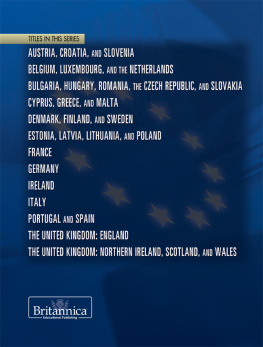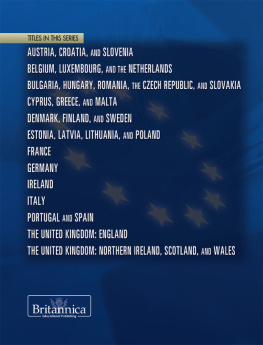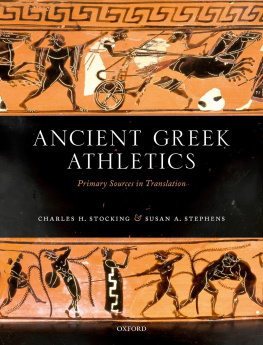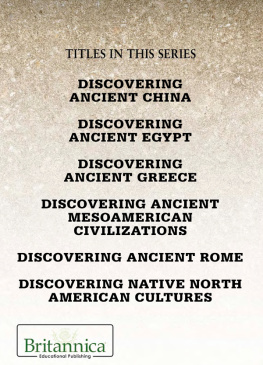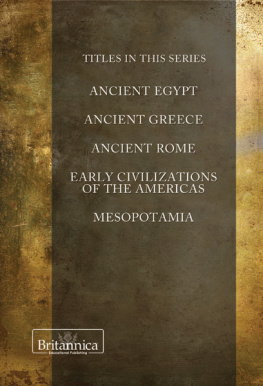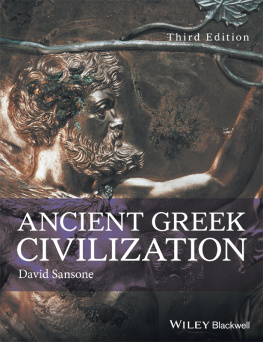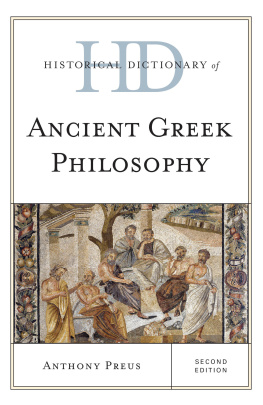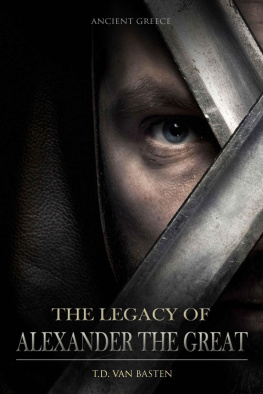ANCIENT
GREECE
FROM THE ARCHAIC PERIOD TO THE DEATH OF ALEXANDER THE GREAT
THE BRITANNICA GUIDE TO ANCIENT CIVILIZATIONS
ANCIENT
GREECE
FROM THE ARCHAIC PERIOD TO THE DEATH OF ALEXANDER THE GREAT
EDITED BY KATHLEEN KUIPER, MANAGER, ARTS AND CULTURE

Published in 2011 by Britannica Educational Publishing
(a trademark of Encyclopdia Britannica, Inc.)
in association with Rosen Educational Services, LLC
29 East 21st Street, New York, NY 10010.
Copyright 2011 Encyclopdia Britannica, Inc. Britannica, Encyclopdia Britannica,
and the Thistle logo are registered trademarks of Encyclopdia Britannica, Inc. All
rights reserved.
Rosen Educational Services materials copyright 2011 Rosen Educational Services, LLC.
All rights reserved.
Distributed exclusively by Rosen Educational Services.
For a listing of additional Britannica Educational Publishing titles, call toll free (800) 237-9932.
First Edition
Britannica Educational Publishing
Michael I. Levy: Executive Editor
J.E. Luebering: Senior Manager
Marilyn L. Barton: Senior Coordinator, Production Control
Steven Bosco: Director, Editorial Technologies
Lisa S. Braucher: Senior Producer and Data Editor
Yvette Charboneau: Senior Copy Editor
Kathy Nakamura: Manager, Media Acquisition
Kathleen Kuiper: Manager, Arts and Culture
Rosen Educational Services
Alexandra Hanson-Harding: Editor
Nelson S: Art Director
Cindy Reiman: Photography Manager
Matthew Cauli: Designer, Cover Design
Introduction by Dan Faust
Library of Congress Cataloging-in-Publication Data
Ancient Greece: from the archaic period to the death of Alexander the Great / edited by
Kathleen Kuiper.1st ed.
p. cm.(The Britannica guide to ancient civilizations)
In association with Britannica Educational Publishing, Rosen Educational Services.
Includes bibliographical references and index.
ISBN 978-1-61530-209-3 (eBook)
1. GreeceHistoryTo 146 B.C. 2. GreeceCivilizationTo 146 B.C. I. Kuiper, Kathleen.
DF77.A5876 2010
938dc22
2010000852
On the cover: The magnificent Parthenon, shown here with a broken column in the
foreground, was built on the Acropolis in Athens, Greece, to honour the goddess Athena.
Pete Turner/Stone/Getty Images
On page photo credit pp. Shutterstock.com
CONTENTS

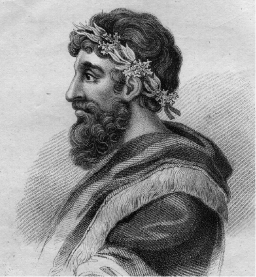
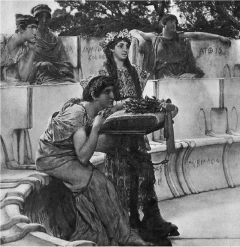

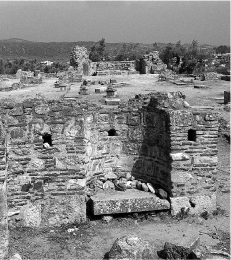
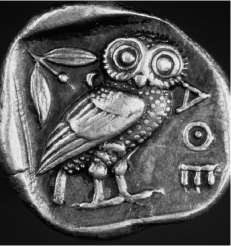

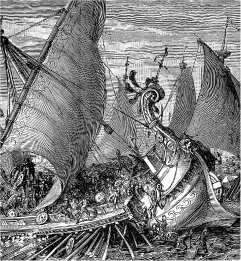
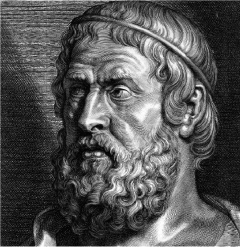

INTRODUCTION

Pericles (495429 BC), who ruled Athens during its Golden Age, is one of the most pivotal figures in the history of ancient Greece. Hulton Archive/Getty Images
A mong the civilizations that preceded that of the Greeks were those of Minos and Mycenae. On the island of Crete, the Minoans established a sophisticated culture, the ruins of which are still visible at Knossos. Later the Myceneans formed a mighty kingdom in the Peloponnese, the hand-shaped peninsula of southernmost mainland Greece. By and large, however, the term ancient Greecethe subject of this bookusually refers to the period between the end of the Mycenaean eraabout 1200 BCand the death of Alexander the Great in 323 BC. Most of the political, philosophical, scientific, and artistic achievements of Greek civilization date to this period.
The period immediately following the collapse of the Mycenaean civilization is frequently described as a dark age. Like the western European period after the fall of the Roman Empire that is so described, Greeces Dark Age involved a significant decrease in population and literacy. As a result, historical information from this period is scant; even later historians writing during Greeces Classical Age were possessed of information about this period that was inaccurate and sometimes even false. What we do know about the post-Mycenaean period is that it involved a series of migrations into western Greece, the best known of which would later be named the Dorian invasion.
The Dorians were a linguistic subgroup whose migration into the Peloponnese was said to be connected to the legendary return of the descendants of Heracles [Hercules]. Of course, when Greek historians wrote about the return of Heracles descendants they were simply trying to explain why the civilizations that inhabited the Peloponnese during their time were different from the ones described in the myths and legends of Homer, the epic poet of the Iliad and the Odyssey. This invented tradition is one of the hurdles we face when reading sources from the time period; that is, certain relatively new aspects of Greek society are retroactively tied to previous traditionswhether historical or mythologicalas a means of creating legitimacy. Regardless of who the Dorians were, one thing is abundantly clear: the hostility between the Dorians and the Ioniansanother of the three main linguistic subgroups in Greecewould shape the social, political, and cultural landscape of Greece for centuries.
Greeces Dark Age was followed by the Archaic period (c. 650480 BC), during which time the steadily increasing population brought about reurbanization and expansion, leading to the formation of the city-state, or polis. During the Mycenaean period, Greece had been divided into kingdoms that encompassed numerous small towns, as well as larger estates owned by nobility. With the collapse of Mycenaean civilization, these kingdoms, towns, and estates vanished, only to be replaced by small villages. Over time, the populations in these villages grew, leading to the synoikismos, or gathering together, of the population of a given territory into a city-state. This gathering together could occur in two ways: either as a physical concentration of a population within one city or as a more abstract political unification of geographically separate groups. Whichever form of
Next page


